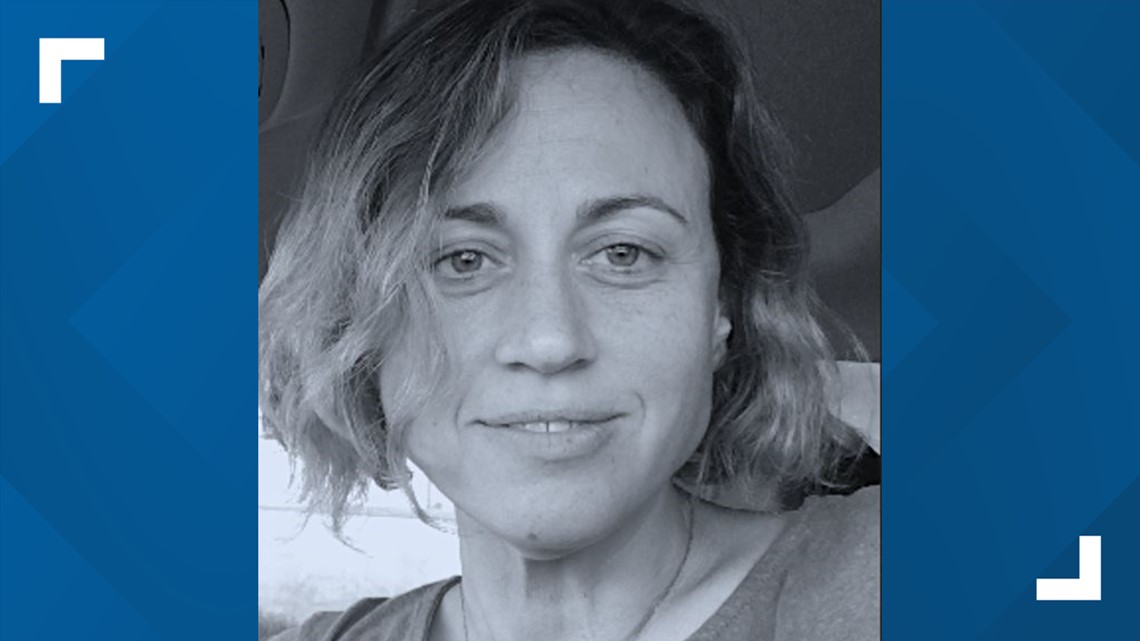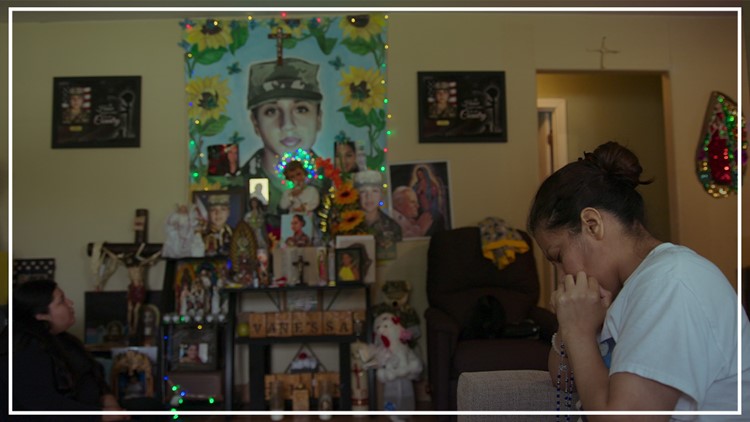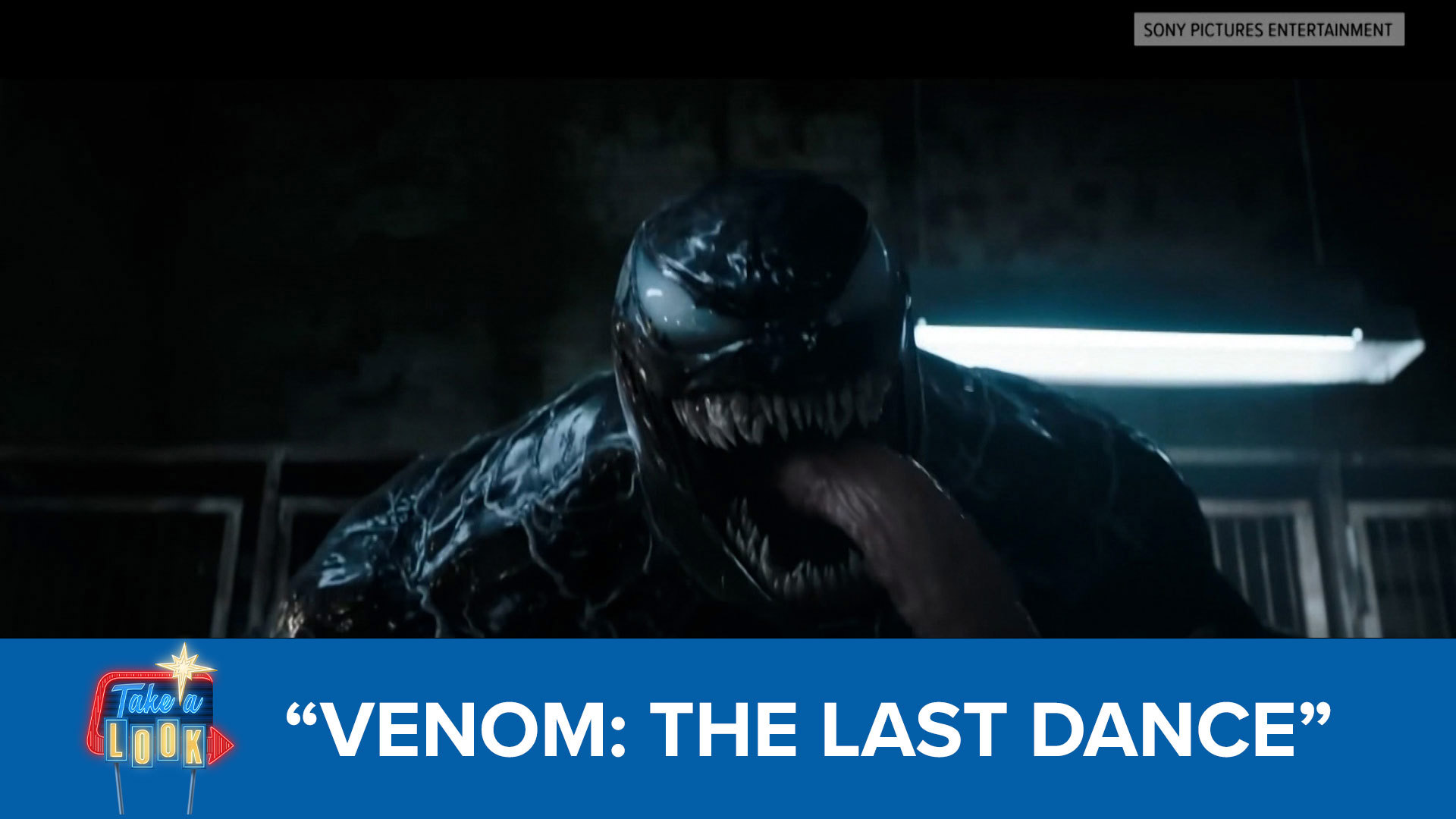SAN ANTONIO — "Vanessa's always been the bravest of us," is the first thing we hear in "I Am Vanessa Guillen," the new Netflix documentary about a resilient Texas family who fought for change after the death of a Fort Hood soldier and beloved relative.
The words are spoken by Guillen's younger sister, a familial anchor for the movie's opening. But at the onset of a a busy documentary that will go from Houston suburbs to congressional DC offices, splicing in images from news reports, protests, legislative votes, courtrooms and a family in grief, it also establishes a through line by which to remember that the Guillen family's willingness to keep fighting comes from the person they're fighting in the name of.
"I Am Vanessa Guillen" – named after the legislation created to reform how sexual assault complaints are handled in the military – traces how the family carved fortitude from desperation, spurned activism from a nightmare and found courage to inspire a community. Capturing their journey was first-time feature director Christy Wegener, who spoke with KENS 5's David Lynch about telling the Guillens' years-long story that continues to this day.
(The below interview has been edited for clarity.)
David Lynch: Where were you when you first heard about the Guillen story, and when did you start closely capturing it?
Christy Wegener: I believe it was the end of April 2020. Vanessa had been missing maybe about a week or so. I was on social media and I saw something forwarded I believe on Facebook from Mayra Guillen, the older sister, pleading for any information about Vanessa's whereabouts. I'm an older sister of two young sisters and it really struck a chord with me on a very personal level, just knowing how it feels to be so protective and worried. So that was when I first heard about it.
As the timeline progressed and everyone's sort of waiting to see, hoping Vanessa would be found, and then obviously it was a really tragic outcome. The Guillens started going to DC. I'm based in New York, and they're going to DC to pursue the first bill and there was marches and vigils, and so I just started participating in those events. I drove down and started sort of having a dialogue at that point. That's the origin of it.
Across 100 minutes your documentary goes into the search for Vanessa, the systemic issues at Fort Hood, criminal justice, the family's resilience. From a filmmaking and editing standpoint, how do you make sure all those angles get their fair share in a movie?
First and foremost, we had to explain the event that happened, the traumatic event. We know it's ground well-covered in Texas, especially, and people know the story. But we have to explain the horror of what happened without sensationalizing it; that was a really important objective for our team, was to make sure we talked about the horrificness of the crime, because it's important to explain to the audience the kinds of crimes that are going on at this base. But also make sure we don't indulge in it in a way that's insensitive, and being sensitive to the family was always priority No. 1 in this project.
What was so exceptional is the family, in this time of incredibly deep grief – which was just unreal, they were really suffering – in that period of time, they chose to do something which I thought was so exceptional, which was really take this fight on board. They didn't want this to happen to anyone else. And that is truly where their heart was at: They just didn't want someone else to go through what they were going through. So that was sort of the leading focal point of the narrative at that stage.
Much of your work lately is in long-form and on the series side of things. Why was a feature documentary the approach you went with here? Was there ever a stage where you considered this to be a series?
Definitely there's more than enough story and details for this to have been a series, and it was definitely something that was discussed at some stage. However, a contained narrative and the film structure really provides this sort of level of immersive experience. You can really follow an arc in a film. It's a really emotional story, and we wanted people to, from A to Z, be in that experience and really have the takeaways at the end of watching it that are really important takeaways to have about this issue. (With) a series, people would stick it out, but it's really important in the single viewing that you really get the full spectrum of the issue that we're dealing with here.
When we think of Vanessa Guillen, the first image that comes up is her service photo, because it's become a symbol of sorts for this family's movement and the bill. But the first image we see of her is cell phone video from when she was a teenager, probably taken by family. Was that an intentional decision, to start with the person who inspired a movement?
Absolutely. One thing that Gloria Guillen, Vanessa's mom, told us at the very beginning is she wanted us to honor her daughter. Vanessa's life was taken in such a horrific way and she was dehumanized at the base, essentially. And so it was really important to show that this is a person, a multilayered person, who a lot of people cared about, who had many facets to her life. She wasn't just a soldier; she was a sister, she was a friend and she was an inspiration to those people. She was a very strong young woman, a very independent young woman, and we wanted to make sure that that came through. In part that was for the family, but also just for the world to see that it wasn't just that image which has become iconic now, of her in her uniform.


Speaking of the family, they're clearly comfortable with you given how much of their journey you follow. How much time did you spend getting to know them and talking with them before cameras started rolling?
From the first time we started talking till the moment we were filming, it was at least for months, maybe five, that passed. But during that time they were consumed with finding out more answers about why Vanessa was killed. They were consumed with passing the bill. So I think they just got enough of a good feeling about our intentions and our focus, what we wanted to do, that they felt comfortable.
We got to know them really well during the filming process. A priority for us was always, always to respect boundaries. We were not going to push in a way that maybe other filmmakers might push. It was very obvious they were grieving. We just wanted to be respectful, that was priority No. 1. They've said to me many times how much they appreciated that in hindsight, and I think that was the right tact.
As we chat today, "I Am Vanessa Guillen" is in Netflix's top 10 on their carousel, meaning it's a pretty widely-watched movie in the days since it's come out. More than two and a half years after Vanessa initially went missing, and a few months after the bill was passed into law this year, with so much else also going on in the world, what is it about the Vanessa Guillen story and movement and person that you think still resonates with the national audience?
I mean, the story is exceptional in the way that this is a family with no political experience that... they were able to utilize the democratic process and change a law. I think, for a lot of people, although the story's tragic, it does give hope. We live in really difficult times, obviously, and this is a tragedy that has some level of positivity at the end in the sense that this was a bipartisan bill in one of the most divisive times in history. There was just an outpouring of support and community support not only in Houston and in Texas, but around the world. So there is a sort of through line of love and community in this film that I think is really important to see in such challenging times.
---
>TRENDING ON KENS 5 YOUTUBE:



